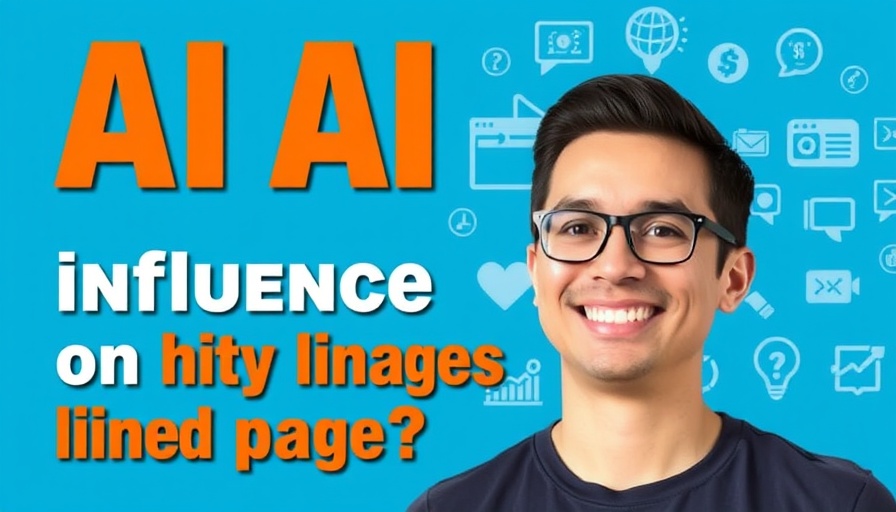
The Shift in Google's Search Dynamics: Understanding the Decoupling
In the ever-evolving landscape of online marketing, the advent of AI technologies in search engines has initiated a significant shift—termed ‘The Great Decoupling.’ This phenomenon, observed by many in the digital marketing community, illustrates a troubling trend where Google Search is now generating a high number of impressions but a noticeably lower click-through rate (CTR).
With the recent rollout of AI Overviews on Google Search, many site owners and marketers are experiencing a disconnect. Impressions, which reflect how often a page appears in search results, continue to surge, yet actual clicks plummet. The result? A puzzling scenario where businesses see their visibility grow without realizing the expected growth in traffic.
Why Is This Happening? Let's Dive Deeper
The explanation for this shocking disparity revolves around the nature of AI Overviews themselves. As Google melds its capacity to present information more efficiently through AI, users often find answers directly in the search results, negating the need to click through to websites. This new approach promises convenience, but for marketers and business owners, it represents a seismic shift in how traffic is generated and, ultimately, how revenue is realized.
Statistical Insights: Understanding the Content Quality Impact
Recent statistics from industry studies reaffirm the depth of this issue. Reports indicate that the click-through rates have decreased across multiple industries, particularly for informational queries where Google synthesizes answers rather than directing users to external resources. As Larry Engel pointed out in a recent LinkedIn post, the visual representation of performance metrics from Google Search Console is alarming. Charts share a story of decreasing clicks contrasted with stable or rising impressions, marking the unnatural trajectory of search performance.
Future Predictions: Navigating the New Search Paradigm
Looking forward, what does this mean for small business owners and marketers? Adapting to this ‘new normal’ is imperative. Businesses that rely heavily on search traffic must rethink their marketing strategies. With impressions soaring yet clicks dwindling, there’s a pressing need to enhance on-page content quality, create compelling calls-to-action, and employ engaging, relevant multimedia to potentially convert those impressions into clicks.
Future trends suggest that SEO strategies must evolve alongside these technological changes. Leveraging advanced AI SEO tools can help businesses create personalized content that captivates users and entices them to click. As the search engine landscape transforms, those who stay ahead of the curve and adapt proactively will stand to benefit immensely.
Emotional Insights: The Marketer's Dilemma
This situation creates not only a strategic challenge but an emotional one for marketers and small business owners. It raises concerns about their effectiveness and market presence. The feeling of investing time and resources in SEO, only to see diminishing returns, can be disheartening. It prompts a need for resilience—the understanding that in a landscape driven by algorithms and AI, adaptability and learning are key to longevity.
Actionable Insights: Optimize for AI and Engage Users
To thrive amidst The Great Decoupling, here are actionable strategies for business owners and marketers to consider:
- Enhance Content Relevance: Prioritize creating high-quality, engaging content that fulfills user intent and is optimized for snippets to capture attention.
- Embrace AI Tools: Utilize AI-driven SEO tools to analyze user behavior and optimize page performance for better engagement.
- Focus on User Experience: Ensure that your website is easy to navigate, mobile-friendly, and fast, which contributes to retaining visitor interest once they do land on your page.
As we witness this industry transformation, it becomes crucial for everyone involved to adapt strategies accordingly, embracing the power of AI while enhancing emotional intelligence in their marketing efforts. If these insights resonate with you, take the initiative to implement changes that engage your target market more effectively! Be proactive—it’s the only way to ensure your business thrives in the future of search.
 Add Row
Add Row  Add
Add 




Write A Comment